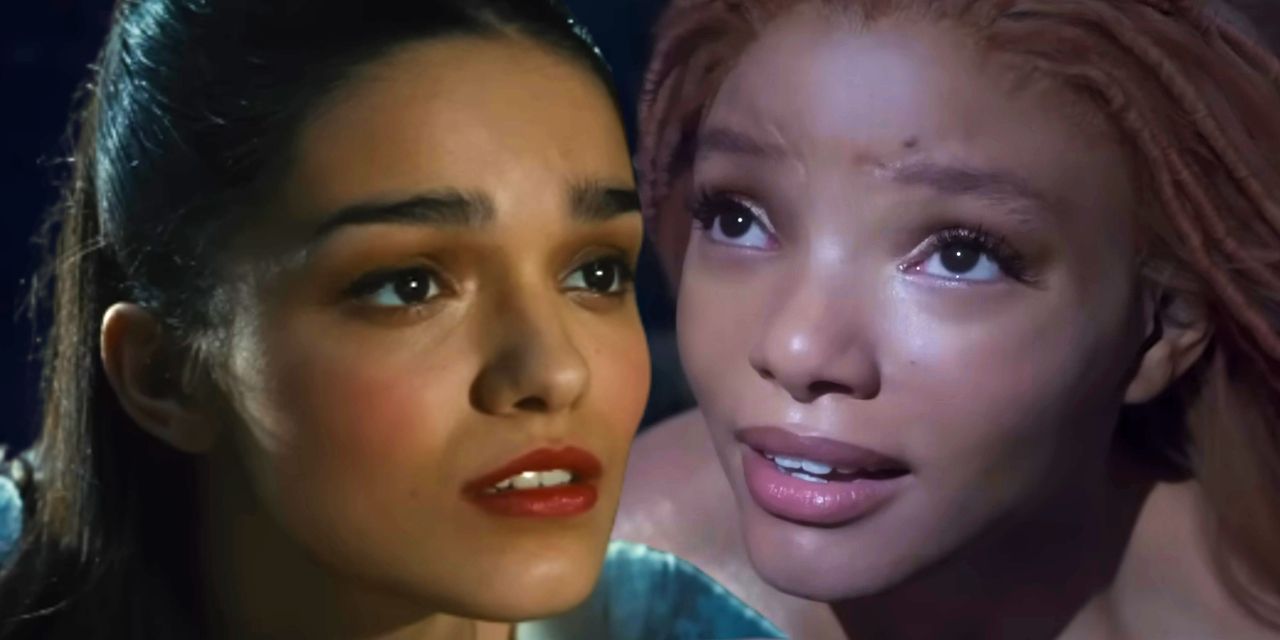Disney’s live-action remakes have become a cornerstone of the studio’s strategy, transforming beloved animated classics into modern spectacles with mixed results. Two of the most high-profile entries, The Little Mermaid (2023) and Snow White (2025), have sparked intense debate, not only for their artistic merits but also for the controversies surrounding their production and reception. Both films faced significant backlash—The Little Mermaid for its casting choices and Snow White for its narrative changes and political firestorms—leading to disappointing box office performances and critical drubbings. But which remake is worse? This article compares the two films across key dimensions: critical reception, box office performance, artistic execution, and cultural impact, drawing on recent reviews and online sentiment to determine which misstep hit Disney harder.
Critical Reception: A Mixed Bag of Disappointment
Both The Little Mermaid and Snow White struggled to win over critics, but their Rotten Tomatoes scores tell different stories. The Little Mermaid, directed by Rob Marshall and starring Halle Bailey as Ariel, earned a 67% “Fresh” rating on Rotten Tomatoes, with 360 reviews aggregated. Critics praised Bailey’s luminous performance and the film’s vibrant underwater visuals, with Variety calling it “a solid, if not spectacular, update.” However, many felt it lacked the emotional depth of the 1989 original, with The Guardian noting that “the magic feels diluted by CGI excess.” The new songs by Lin-Manuel Miranda were also criticized as forgettable compared to Howard Ashman and Alan Menken’s iconic score.
Snow White, directed by Marc Webb and starring Rachel Zegler, fared far worse, landing a 40% “Rotten” score on Rotten Tomatoes based on 123 reviews. British critics were particularly harsh, with The Times calling it “a new low for cultural desecration” and The Guardian describing it as “toe-curlingly terrible.” While Zegler’s singing and charisma were highlights, reviewers slammed the film’s “muddle-headed” execution, lackluster CGI dwarfs, and uninspired new songs like “Princess Problems.” Some, like Variety’s Owen Gleiberman, found it “one of the better live-action adaptations,” but even positive reviews acknowledged its failure to capture the 1937 original’s sweetness.
Verdict: Snow White takes the bigger hit here. Its lower Rotten Tomatoes score and scathing reviews reflect a broader consensus that it failed to justify its existence, whereas The Little Mermaid at least garnered moderate praise for its lead and visuals.

Box Office Performance: Underwhelming Returns
Box office figures reveal the extent of both films’ struggles, though The Little Mermaid outperformed Snow White despite its own challenges. The Little Mermaid grossed $569 million worldwide against a $240 million budget, falling short of the $600 million needed to break even when marketing costs are considered. Its $95.5 million domestic opening was solid but paled compared to The Lion King’s $191 million or Beauty and the Beast’s $174 million. International markets, particularly in Asia, underperformed due to racist backlash against Bailey’s casting, with some audiences rejecting a Black Ariel.
Snow White was a more significant financial disappointment, earning just $169 million globally against a $250 million budget, far from the estimated $625 million needed to break even. Its $43 million domestic opening was dwarfed by The Little Mermaid’s debut and even Dumbo’s $45 million in 2019, which was itself considered a flop. Posts on X echoed the sentiment, with @MarioNawfal noting Snow White’s “$45M opening weekend vs. Little Mermaid’s $95.5M” as evidence of its failure. The film’s lackluster advance ticket sales and scaled-back premiere underscored Disney’s lack of confidence.
Verdict: Snow White again comes out worse. Its drastically lower box office haul and failure to approach profitability mark it as a bigger financial misfire than The Little Mermaid, which at least neared its break-even point.
Artistic Execution: Misguided Modernizations
Both remakes aimed to modernize their source material but stumbled in execution, alienating fans while failing to fully embrace their new visions. The Little Mermaid retained much of the 1989 film’s plot, focusing on Ariel’s curiosity about the human world. However, it added new songs and expanded Ursula’s backstory, which some found unnecessary. The CGI underwater scenes were visually impressive but often felt artificial, with IndieWire criticizing the “uncanny valley” effect of the talking sea creatures. Bailey’s soulful rendition of “Part of Your World” was a standout, but the film’s 2-hour-15-minute runtime dragged compared to the original’s lean 83 minutes.
Snow White took greater liberties, reimagining the princess as a leader rather than a romantic dreamer, a choice driven by screenwriter Erin Cressida Wilson and co-writer Greta Gerwig. The iconic “Someday My Prince Will Come” was axed, and the love story was downplayed, prompting backlash from fans who felt the film betrayed the original’s heart. The decision to use CGI for the dwarfs—following criticism from actor Peter Dinklage about perpetuating stereotypes—was widely panned, with The Hollywood Reporter calling them “creepy” and “less photorealistic than the woodland creatures.” Gal Gadot’s Evil Queen was criticized for lacking menace, and the new songs by Benj Pasek and Justin Paul failed to match the original’s timeless charm.
Both films suffered from Disney’s struggle to balance nostalgia with innovation. The Little Mermaid stayed closer to its source, preserving key songs and moments, but felt bloated and overly polished. Snow White’s bolder changes, like the CGI dwarfs and altered narrative, alienated audiences and critics alike, with HuffPost describing it as “the strangest, hottest mess” of Disney’s remakes.
Verdict: Snow White’s artistic missteps are more glaring. Its radical departures from the original, combined with poor CGI and weak music, make it feel more disjointed than The Little Mermaid, which at least retained some of the original’s magic.
Cultural Impact and Controversies
Both films were lightning rods for controversy, reflecting broader cultural debates about diversity, representation, and “woke” storytelling. The Little Mermaid faced racist backlash for casting Halle Bailey, a Black actress, as Ariel, a character depicted as white in the 1989 film. Social media campaigns and hashtags like #NotMyAriel trended, and international box office numbers suffered, particularly in China and South Korea. Despite this, Bailey’s casting was celebrated as a step toward inclusivity, with Variety quoting R&B legend Brandy, who advised Bailey to focus on inspiring young girls of color. The film’s 94% audience score on Rotten Tomatoes suggests that many embraced the update, even if critics were lukewarm.
Snow White’s controversies were more multifaceted. Rachel Zegler’s casting as a Latina Snow White sparked similar racist criticism, with detractors arguing she didn’t fit the “skin as white as snow” description. Disney addressed this by tying her name to a snowstorm, but the backlash persisted. Zegler’s comments about the 1937 film being “dated” and the prince “stalking” Snow White fueled accusations of disrespect, leading to review bombing on IMDb, where 91.4 as The Little Mermaid’s more focused narrative and stronger lead performance gave it an edge, Snow White’s broader missteps—critical panning, financial failure, and cultural backlash—make it the worse of the two. Disney’s live-action remake machine may need a serious rethink before it tackles Tangled or Moana.




